We Are Leader Guide: Your Path to Leadership in 2025
In a world where change is the only constant, the demand for genuine, adaptable leaders has never been more urgent. The call for transformation echoes across industries, urging individuals to step up and make a difference.
This guide is designed to help you navigate the complexities of leadership in 2025. Whether you're an aspiring manager or a seasoned professional, you’ll find actionable insights and proven strategies to elevate your impact.
Discover how the meaning of leadership is evolving, what competencies matter most, and how the we are leader approach can empower you to lead with authenticity. Start your journey with practical steps and expert resources curated for today’s dynamic environment.
The Evolving Definition of Leadership in 2025
In 2025, the meaning of "we are leader" is undergoing a remarkable transformation. Leadership is no longer confined to titles or formal authority. Instead, it’s about how we show up, collaborate, and empower others to create positive change.
The rapid pace of societal and technological evolution is demanding a fresh approach to what it means to lead. People everywhere are realizing that "we are leader" applies to all of us, not just those at the top of an organization.
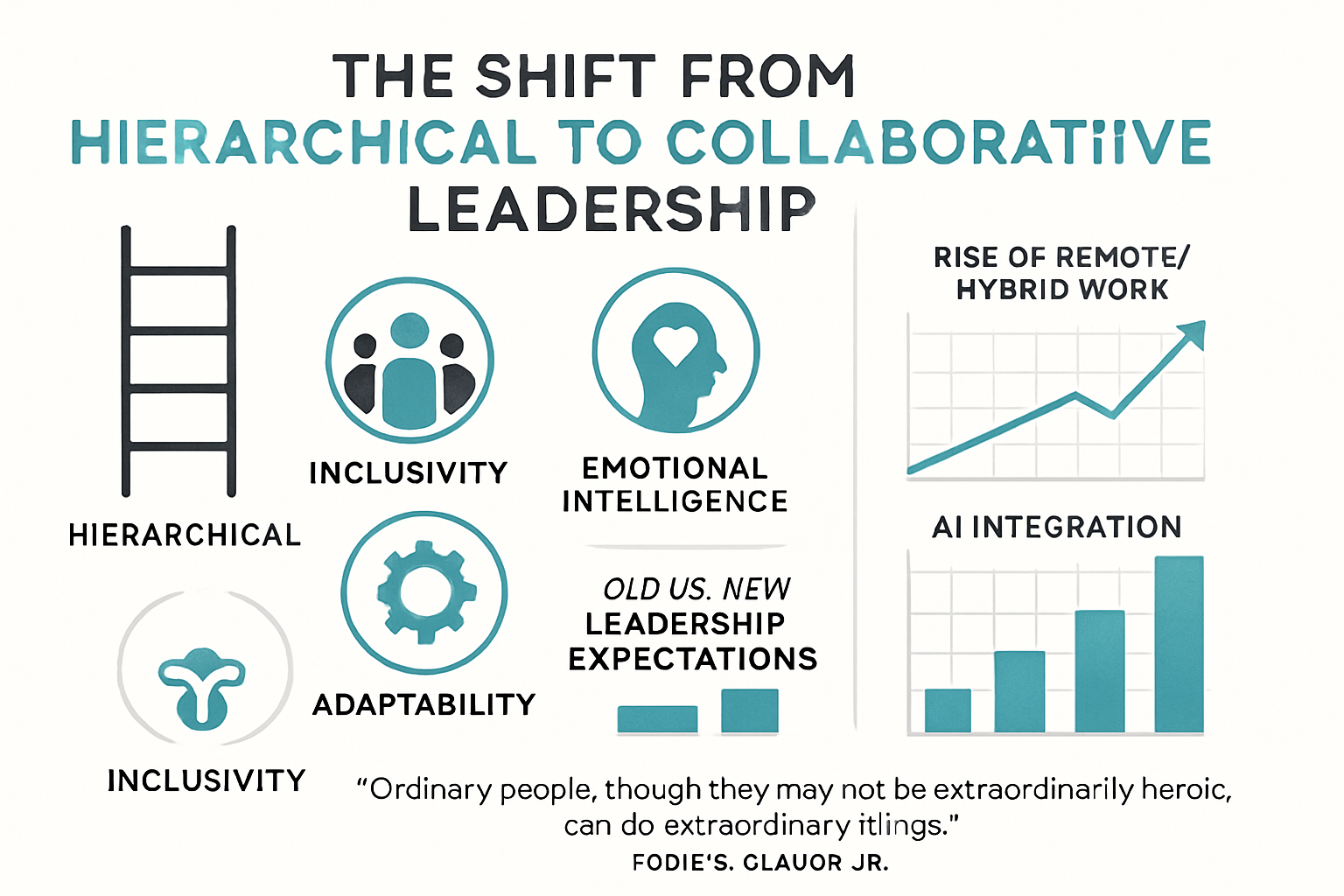
Understanding Modern Leadership Paradigms
The traditional, top-down model of leadership is being replaced by more collaborative and distributed approaches. Today, "we are leader" means fostering environments where everyone feels empowered to contribute ideas and take initiative.
Modern leaders are expected to embrace inclusivity, demonstrate emotional intelligence, and adapt quickly to change. According to Harvard University Press, there’s a growing expectation for leaders to build democracy and shared responsibility at every level.
Technology and globalization are also reshaping what it means to lead. Leaders must now navigate diverse teams, digital tools, and complex global issues. Eddie S. Glaude Jr. has emphasized that ordinary individuals can and should assume leadership roles within their communities, reminding us that "we are leader" is a call to action for all.
Empowering others has become a central argument in current leadership thinking. Rather than simply directing teams, effective leaders help others grow and succeed. This shift demands a heightened focus on social justice, diversity, and ethical challenges—areas where "we are leader" thinking truly shines.
Continuous learning and self-reflection round out the core of modern leadership. As the landscape evolves, so must our own practices and mindsets. In 2025, embracing the "we are leader" philosophy means committing to growth, adaptability, and a willingness to question the status quo.
Key Trends Shaping Leadership
Several key trends are influencing the "we are leader" mindset in 2025. The integration of AI and digital tools is revolutionizing how leaders make decisions and manage teams. Remote and hybrid work environments are now the norm, requiring leaders to master virtual communication and foster connection from a distance.
Transparency and authenticity have become non-negotiable. Teams expect openness from their leaders, and leaders who share data-driven insights are seeing better outcomes. For example, many organizations now use real-time analytics to inform decisions and boost team performance.
According to Leadership statistics and trends 2025, over 60% of organizations are prioritizing adaptive leadership skills to stay ahead in this new environment. This underscores the necessity for leaders to adapt to both technological advances and shifting social expectations.
To thrive, leaders must embrace these changes head-on. The "we are leader" approach is about staying agile, learning from new developments, and inspiring others to do the same. Those who continue to evolve will be best equipped to make a lasting impact in 2025 and beyond.
Essential Leadership Competencies for the Future
In 2025, the landscape of leadership is being reshaped by new expectations and rapid innovation. To meet tomorrow’s demands, every aspiring leader must embrace a fresh set of competencies. Whether you see yourself at the helm of an organization or igniting change in your community, understanding these essential skills will set you on the right path. Let’s explore what it truly means to say “we are leader” in the modern era.
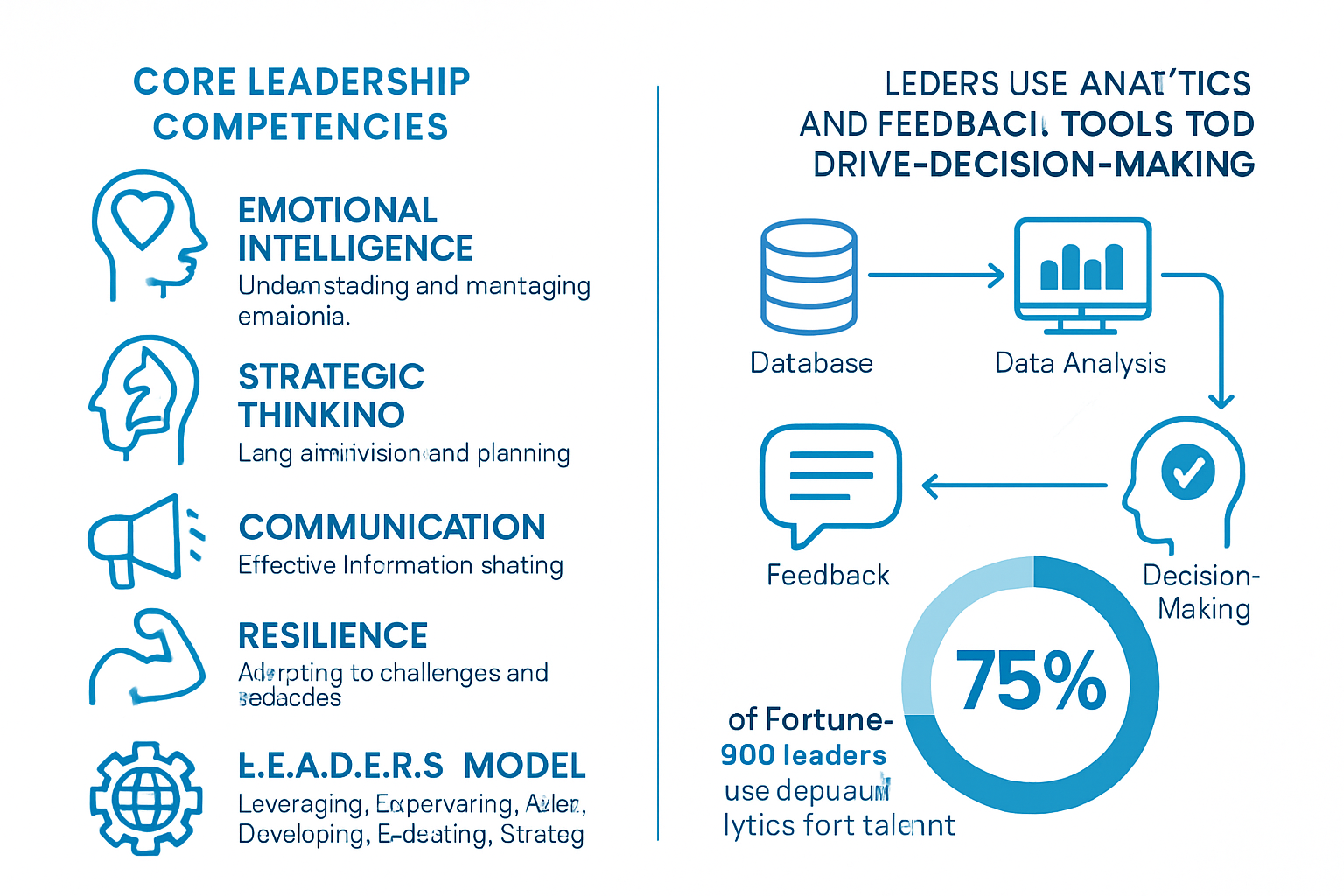
Core Skills Every Leader Needs in 2025
The definition of “we are leader” is rapidly evolving. No longer is leadership about a single visionary at the top. Instead, it's about empowering others, fostering collaboration, and navigating complexity with clarity.
The most crucial competencies for future leaders include:
- Emotional intelligence: Recognizing and managing your emotions while empathizing with others.
- Strategic thinking: Anticipating change, spotting opportunities, and planning ahead.
- Communication: Sharing ideas clearly, listening actively, and inspiring action through storytelling.
- Resilience: Staying focused and composed during setbacks or uncertainty.
- Cultural competence: Leading diverse teams with respect, openness, and adaptability.
A holistic approach is essential. The L.E.A.D.E.R.S. framework—Learning, Empathy, Accountability, Diversity, Empowerment, Resilience, Service—offers a practical model for building these skills.
As organizations shift toward hybrid work and digital transformation, leaders must adapt. According to Leadership trends for 2025, embracing technology and fostering genuine connection are now non-negotiable. “We are leader” means being ready to grow alongside your team and the world.
Competencies are not static. They must evolve as organizations and society change. Those who commit to continuous learning and self-reflection will stand out as the “we are leader” examples of tomorrow.
Data-Driven Leadership and Decision-Making
Modern leaders can’t rely on intuition alone. The “we are leader” mindset demands data literacy and the ability to turn insights into impact.
Leaders are now expected to:
- Use analytics to guide strategy and operations.
- Balance hard data with empathy and real-world context.
- Leverage real-time feedback tools to enhance decision-making.
Consider this comparison:
| Approach | Strengths | Limitations |
|---|---|---|
| Data-Driven | Objective, scalable, predictive | May miss human nuance |
| Human Insight | Contextual, empathetic, flexible | Risk of bias, less measurable |
A striking figure: 75% of Fortune 500 leaders use data analytics for talent and performance management. Yet, the best results come when analytics are combined with the “we are leader” approach—using data to empower people, not just measure them.
Organizations using real-time feedback tools have seen measurable improvements in leadership effectiveness. The “we are leader” philosophy encourages you to embrace both technology and humanity, ensuring your leadership remains relevant and impactful.
Step-by-Step Guide: Your Path to Leadership in 2025
Embarking on the journey to become a transformative leader is more accessible than ever. The "we are leader" mindset is about taking ownership of your growth, embracing continuous learning, and stepping into opportunities to create impact. This step-by-step roadmap breaks down the process so you can develop your unique leadership potential for 2025.
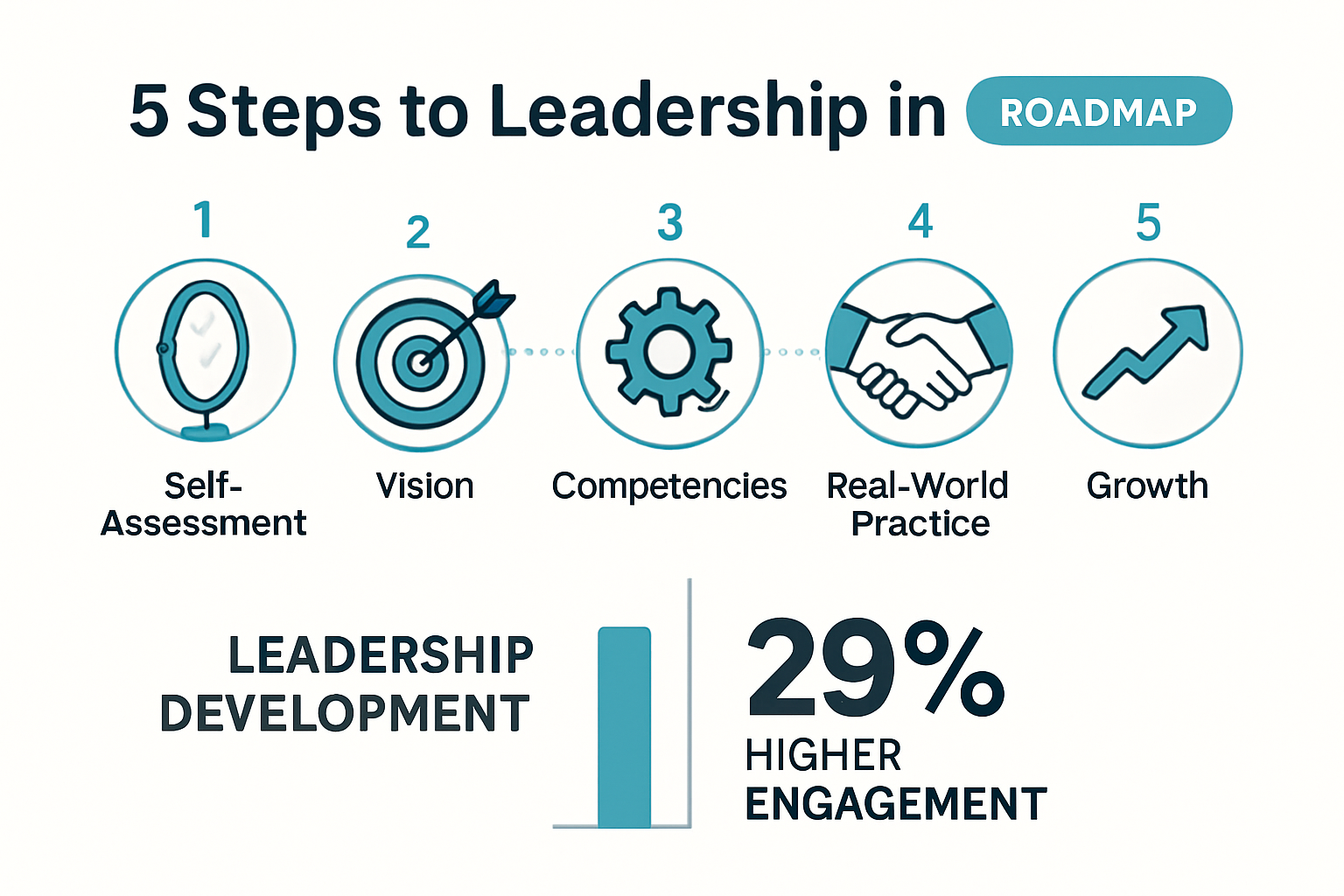
Step 1: Self-Assessment and Reflection
Every "we are leader" journey begins with self-awareness. Before you can influence others, you need to understand your own strengths, values, and areas for growth. Take time to reflect on what drives you and where your passions lie.
Utilize validated assessment tools such as personality inventories or 360-degree feedback surveys. These tools offer valuable insights into your leadership style and highlight gaps you may need to address.
Ask yourself:
- What are my core values and beliefs?
- Which leadership qualities come naturally to me?
- Where do I need further development?
Honest self-reflection is the foundation of authentic leadership. Embrace feedback, and remember that the "we are leader" approach means seeing self-discovery as an ongoing process.
Step 2: Setting a Vision and Goals
Great leaders have a clear sense of purpose. The "we are leader" philosophy encourages you to define your leadership vision and set meaningful goals that align with both your personal values and your organization's mission.
Start by articulating your long-term objectives. What impact do you want to make? Next, break these down using the SMART framework—Specific, Measurable, Achievable, Relevant, and Time-bound.
Actionable tips:
- Draft a personal leadership statement.
- Identify short-term actions that support your vision.
- Regularly revisit and revise your goals.
For a more detailed approach, consider Developing your leadership plan to structure your progress and keep yourself accountable. Remember, the "we are leader" mindset thrives on clarity and direction.
Step 3: Building Core Competencies
To embody the "we are leader" mindset, commit to strengthening the skills that matter most in 2025. Focus on emotional intelligence, strategic thinking, effective communication, resilience, and cultural competence.
Engage in targeted training sessions, online courses, or workshops. Seek mentorship from experienced leaders who can offer guidance and perspective.
Incorporate the L.E.A.D.E.R.S. model into your development:
- Learning: Stay curious and open to new ideas.
- Empathy: Understand and relate to others.
- Accountability: Own your actions and outcomes.
- Diversity: Value different perspectives.
- Empowerment: Help others grow.
- Resilience: Bounce back from setbacks.
- Service: Lead with purpose.
Organizations with structured leadership development programs see 29% higher employee engagement. The "we are leader" approach means making learning a priority.
Step 4: Practicing Leadership in Real-World Contexts
The heart of "we are leader" is action. Leadership is honed through experience, not just theory. Look for opportunities to lead in your workplace, community, or volunteer settings.
Don’t be afraid to step up, whether it's managing a project, mentoring a colleague, or organizing a local initiative. Embrace setbacks as learning moments and treat failures as stepping stones to growth.
Examples of real-world practice:
- Taking the lead on a challenging assignment
- Facilitating a team meeting or workshop
- Volunteering for a community project
Remember, every experience adds to your "we are leader" toolkit. The more you practice, the more confident and adaptable you become.
Step 5: Ongoing Growth and Adaptation
Leadership is an evolving journey. The "we are leader" mindset is about committing to lifelong growth and staying adaptable in a rapidly changing world.
Make it a habit to regularly evaluate your progress. Stay informed about emerging leadership trends, and seek out fresh learning opportunities—whether through books, podcasts, or peer discussions.
Reflection prompts:
- What did I learn this month?
- How have my goals shifted?
- What new skills do I need for the future?
Set new challenges for yourself and celebrate your milestones. With the "we are leader" approach, every step forward is a victory on your path to making a meaningful impact in 2025 and beyond.
Real-World Examples: Ordinary People, Extraordinary Leadership
In our fast-changing world, the phrase "we are leader" has taken on new meaning. Leadership is no longer the domain of the high-ranking or the specially chosen. Instead, it’s about ordinary people stepping up to create real impact, often without official titles or formal authority. This section explores how everyday individuals are redefining what it means to lead in 2025.
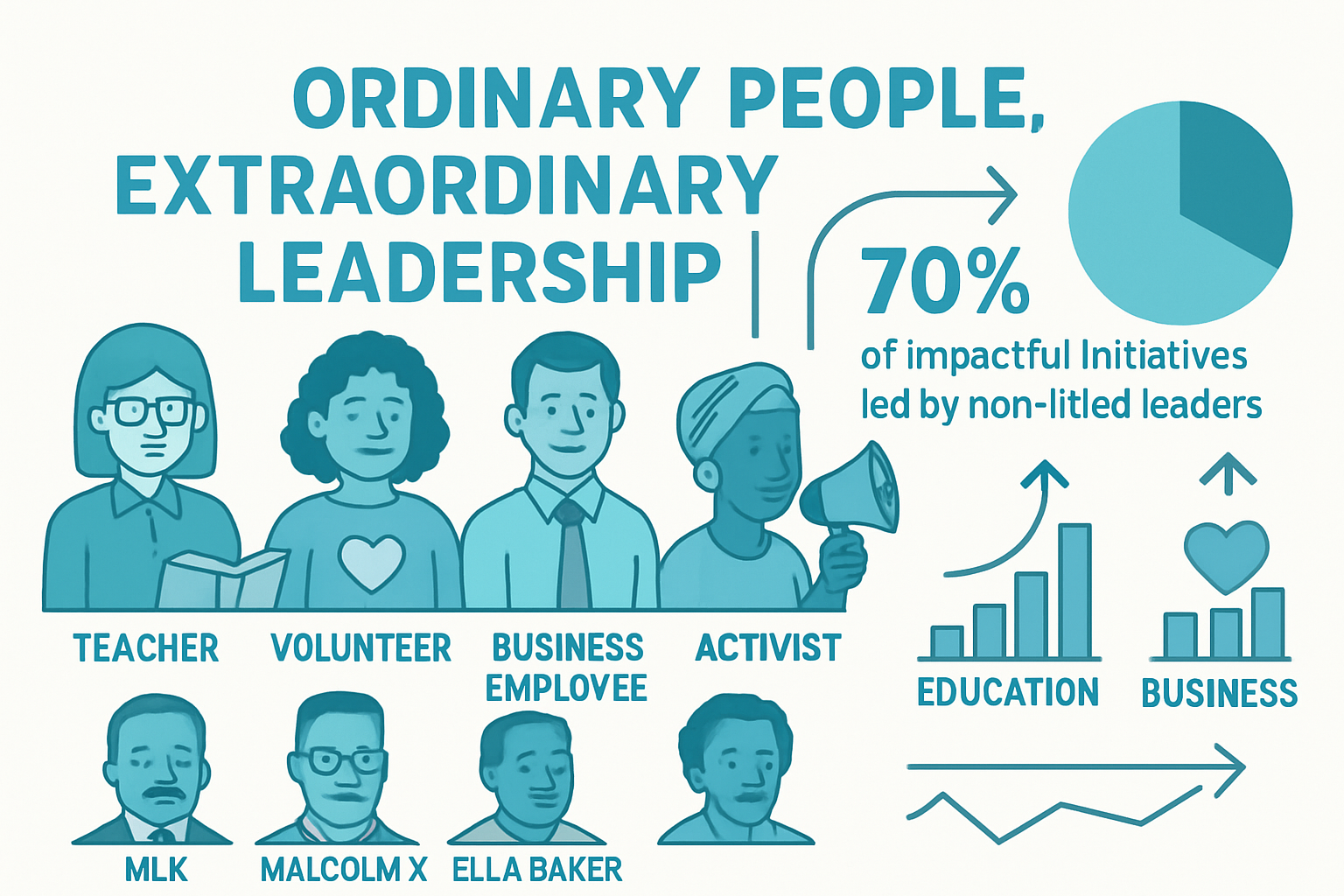
Case Studies in Grassroots Leadership
History is filled with examples of grassroots leadership, where the "we are leader" concept plays out in powerful ways. Eddie S. Glaude Jr. has often highlighted transformative figures like Martin Luther King Jr., Malcolm X, and Ella Baker—not because they held official power, but because they inspired change from within their communities.
Consider how, in recent years, local residents have organized food drives, started neighborhood safety programs, or led social justice campaigns. These leaders didn’t wait for permission. Instead, they recognized a need and took action, motivating others to join their cause.
Statistic Table:
| Initiative Type | Led by Non-Titled Leaders (%) |
|---|---|
| Community Projects | 70 |
| Social Justice Movements | 65 |
| Educational Reform | 60 |
A staggering 70% of impactful community initiatives are spearheaded by individuals who lack traditional leadership titles. This shows that leadership potential exists in everyone. The "we are leader" mindset is about finding your voice, rallying others, and creating meaningful change—no matter your background or position.
Lessons from Diverse Sectors
The "we are leader" principle shows up across every sector. In education, teachers have driven major school reforms simply by advocating for their students and collaborating with peers. In business, employees have led innovation by championing new ideas and practices from within their teams, often influencing company direction without being in senior roles.
Nonprofit organizations are equally shaped by volunteers who mobilize resources, organize events, and support causes, proving that leadership is context-agnostic. Ordinary people have launched fundraising campaigns, mentored youth, and responded to crises with courage and creativity.
What unites these leaders is not their title, but their initiative and commitment. Their stories demonstrate that anyone can be a catalyst for growth. If you’re seeking guidance or tools to help you make a difference, curated collections of essential leadership resources can empower your development.
Ultimately, the "we are leader" journey is about stepping forward when it matters most. Whether in classrooms, boardrooms, or neighborhoods, extraordinary leadership often begins with an ordinary decision to take action.
Overcoming Common Leadership Challenges in 2025
Leaders in 2025 will face a landscape shaped by rapid change, diversity, and the need for resilience. The journey to becoming a we are leader means tackling resistance, fostering inclusion, and prioritizing well-being. Let’s break down the most common hurdles and how to overcome them.
Navigating Resistance and Change Fatigue
Change can trigger uncertainty and pushback in any organization. As a we are leader, building trust and genuine buy-in is essential. Open communication and transparency go a long way. In fact, 65% of change efforts fail due to poor leadership communication.
Try these strategies:
- Host regular Q&A sessions for your teams.
- Share the “why” behind every change, not just the “what.”
- Encourage feedback and celebrate small wins.
Consider the story of a leader who transformed a toxic work culture by prioritizing empathy and direct dialogue. For more actionable approaches, explore these overcoming toxic leadership challenges to help you move your team forward.
Remember, overcoming resistance starts with listening, understanding, and showing you care.
Addressing Diversity, Equity, and Inclusion (DEI) Issues
A we are leader knows that inclusion is more than a buzzword—it’s a must-have. Diverse leadership teams outperform their peers by 33% in profitability. Yet, unconscious bias and exclusion still creep in.
To foster a truly inclusive culture:
- Provide regular DEI training and open discussions.
- Set measurable diversity goals and track progress.
- Promote diverse voices in decision-making forums.
Organizations that embrace DEI initiatives see stronger engagement and innovation. It’s not about checking a box. It’s about unlocking potential and building trust across every level.
If you want your team to thrive, make equity and belonging part of your daily leadership practice.
Managing Stress and Preventing Burnout
The constant pace of change in 2025 means stress is inevitable. As a we are leader, your resilience sets the tone for your team. Leaders must recognize the signs of burnout in themselves and others.
Practical tools for managing stress:
- Encourage regular breaks and flexible schedules.
- Model healthy work-life boundaries.
- Use anonymous pulse surveys to measure team well-being.
Self-care isn’t selfish. It’s foundational for sustainable leadership. When you prioritize well-being, you create space for growth and innovation—not just for yourself, but for everyone you lead.
Resources and Tools for Aspiring Leaders
Every aspiring leader needs a toolkit to help them grow, adapt, and thrive. The right resources can make your "we are leader" journey smoother and more impactful. Whether you’re just starting out or ready to take your skills to the next level, the following tools and strategies will keep you moving forward.
Books, Frameworks, and Learning Platforms
Building your "we are leader" foundation starts with quality learning materials. Here’s a quick comparison of top resources:
| Resource | Focus Area | Benefit |
|---|---|---|
| "We Are the Leaders We Have Been Looking For" | Transformative leadership | Inspires action and self-reflection |
| "We Are L.E.A.D.E.R.S." | Holistic leadership model | Practical steps for leadership growth |
| L.E.A.D.E.R.S. Framework | Core competency development | Structured approach to skill-building |
| Emotional Intelligence Assessments | Self-awareness | Identifies strengths and gaps |
| Online Courses (Coursera, LinkedIn) | Flexible learning | Wide range of leadership topics |
Interactive platforms and certification programs let you learn at your own pace. These resources help you embody the "we are leader" philosophy through continuous development.
Mentorship, Coaching, and Peer Networks
No "we are leader" journey should be navigated alone. Connecting with mentors, coaches, and peer groups accelerates growth and provides invaluable feedback.
- Seek out mentors within your organization or industry.
- Join leadership communities and peer mastermind groups.
- Explore Leadership coaching strategies for expert guidance and structured development.
Leaders who invest in coaching often find new perspectives, accountability, and the encouragement needed to overcome challenges.
Self-Assessment and Feedback Tools
Regular self-assessment is essential for every "we are leader" in 2025. Digital platforms offer:
- 360-degree feedback for a holistic view of your strengths and areas for improvement.
- Progress tracking to measure your leadership growth.
- Data-driven insights to inform your next steps.
Studies show leaders who receive frequent feedback improve their performance by up to 39%. These tools empower you to make informed adjustments and stay on track.
Practical Exercises and Reflection Prompts
Developing the habits of a "we are leader" requires daily and weekly practice. Try these exercises:
- Maintain a leadership journal to reflect on experiences and lessons learned.
- Set aside time each week for self-evaluation.
- Use reflection prompts inspired by L.E.A.D.E.R.S.: How did I empower others today? Where did I show resilience or empathy?
Consistent practice transforms small actions into impactful leadership habits over time.
Staying Ahead: Continuing Your Leadership Journey
The "we are leader" mindset is all about lifelong learning. Stay sharp by:
- Setting new leadership challenges every quarter.
- Celebrating milestones and reflecting on progress.
- Following thought leaders and subscribing to industry updates.
Remember, leadership is a journey, not a destination. Keep evolving, stay curious, and embrace every opportunity to grow as a leader in 2025 and beyond.
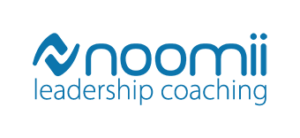



Leave a Reply
Want to join the discussion?Feel free to contribute!